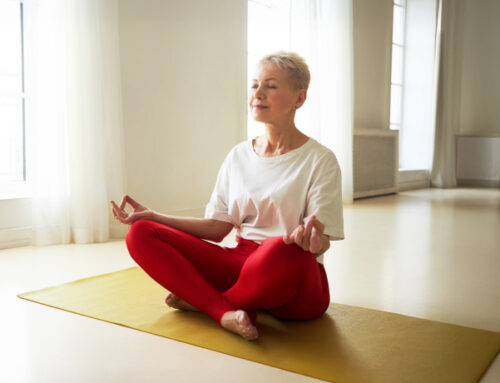Menopause is often viewed as a challenging rite of passage, a significant transition where the body and mind experience profound shifts. Hot flashes, mood swings, sleep disturbances, and other symptoms can make this phase of life feel overwhelming. But here’s the good news: With the right strategies and resources, menopause self-care can effectively ease the journey, offering relief and revitalization. In this article, we’ll delve deep into the solutions and methods women can adopt to help them feel more in control and comfortable during menopause.
What is Menopause?
Menopause marks the end of a woman’s menstrual cycles and fertility. Typically occurring in the late 40s or early 50s, it is a natural biological process that signifies the end of the reproductive years.
Common Symptoms and Challenges
Menopause can introduce a slew of symptoms, including:
- Hot flashes
- Night sweats
- Mood swings
- Decreased libido
- Sleep problems
While these symptoms can be disconcerting, understanding them is the first step toward effective menopause self-care.
The Pillars of Menopause Self-Care
The Pillars of Menopause Self-Care” focuses on holistic strategies that address women’s physical and emotional changes during this transformative phase. By understanding and implementing these pillars, women can empower themselves to navigate menopausal symptoms with grace, resilience, and improved well-being.
Nutritional Adjustments for Hormonal Balance
Eating a balanced diet rich in phytoestrogens, calcium, and omega-3 fatty acids can help in managing the symptoms of menopause. Foods like flaxseed, tofu, and fatty fish can be beneficial.

Exercise and Physical Activity
Regular physical activity can boost mood, manage weight, and improve sleep. Whether it’s yoga, walking, or strength training, find a routine that resonates with your lifestyle.
Mindfulness and Meditation
Embracing mindfulness practices like meditation and deep breathing can counteract stress and help manage mood swings commonly associated with menopause.
Sleep Hygiene
With sleep disturbances being a common complaint, maintaining a regular sleep schedule, creating a comfortable sleep environment, and avoiding caffeine before bedtime can make a significant difference.
Modern Solutions for Menopause Relief
Let’s explore the latest advancements and approaches to alleviate menopausal symptoms, blending scientific innovation with traditional wisdom. These solutions offer women diverse options, enabling them to choose what aligns best with their needs and lifestyle preferences.
Menopause Relief Suppositories
One of the emerging solutions for menopause relief is the use of suppositories. These offer localized relief, especially for symptoms like vaginal dryness. One such noteworthy product is the menopause relief suppositories from Biom Probiotics. You can learn more about this innovative solution and its benefits here.
Hormone Replacement Therapy (HRT)
While it’s not for everyone, HRT can effectively alleviate severe menopausal symptoms. Always consult with a healthcare provider before starting any treatment.
Emotional and Social Support
Seek Professional Guidance
Whether it’s a therapist or a menopause specialist, professional guidance can offer personalized solutions and coping strategies.
Join Support Groups
Connecting with other women in the same phase can be immensely comforting and empowering. Sharing experiences and tips and understanding each other can make the journey smoother.
Conclusion
Navigating menopause doesn’t have to be a solitary or daunting journey. With the right menopause self-care strategies, modern solutions, and support, it can be a transformative period full of new beginnings. Remember, every woman’s experience with menopause is unique. Adopting a tailored approach allows relief, rejuvenation, and a renewed sense of self during this significant life transition.




